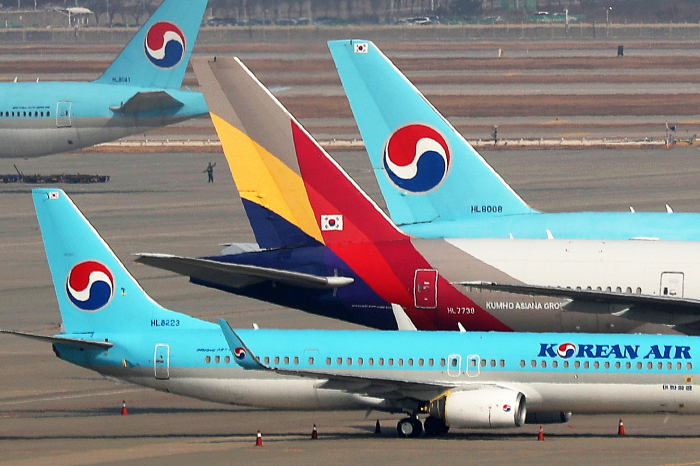
Korean Air awaits approval on its merger with Asiana from six antitrust bodies Korean Air Lines Co., which is putting the final touches on its acquisition of crosstown rival Asiana Airlines Inc., said on Monday it expects to obtain the necessary approval from six antitrust regulators across the globe to complete the proposed merger.Since Korean Air announced its $1.5 billion takeover of Asiana in late 2020, the company has received the go-ahead from eight aviation authorities, including a conditional nod from Korea’s antitrust body. It still must go through reviews by six others – the US, China, Japan, the EU, the UK and Australia.“We have launched a team of 100 experts to address various legal, administrative and monopoly issues raised by the aviation authorities. We’re actively dealing with those issues to complete our merger as announced earlier,” said a Korean Air official.The move follows media reports last month that the US Justice Department plans to put the Korean Air-Asiana merger under tighter scrutiny after United Airlines, the No. 2 air carrier in the US., complained about the tie-up, saying Asiana's exit from Star Alliance would hurt its US-Asian routes.Regarding local media reports that Korean Air has delayed the submission of documents ensuring fair competition to the US authorities, the company said on Monday it took longer than expected to respond to the US regulator’s second request for additional documents. Overview of the Korean Air-Asiana combined entity Korean Air, the country’s flagship carrier, said it is getting advice from a dozen local and global law firms to address any antitrust problems its acquisition of Asiana would create.CHALLENGE LIKELY FROM EUIndustry watchers said the EU may attach harsher conditions to its approval than other authorities, given its recent track record.Earlier this year, the European Commission vetoed the combination of the world’s two largest shipbuilders – Hyundai Heavy Industries Co. and Daewoo Shipbuilding & Marine Engineering Co. – frustrating Korea’s efforts to restructure the country’s shipbuilding industry.Korea’s Fair Trade Commission (FTC) in February of this year approved the Korean Air-Asiana merger on the condition that it would drastically reduce the two carriers' profitable routes. Hanjin Group is the parent of Korean Air The Korean antitrust regulator said at the time that the merger could hurt competition on 26 international and 14 domestic routes among the two companies’ 87 overlapping routes.Accordingly, it asked the two carriers to relinquish a portion of their airport slots and traffic rights, mostly on their heaviest routes such as ones from Seoul to New York, Paris, London, Phuket and Guam. The slots will be reallocated to other Korean airlines, namely low-cost carriers.In November 2020, Korean Air’s parent Hanjin KAL Corp. and its main creditor Korea Development Bank announced that Korean Air will acquire a 63.9% stake in Asiana for 1.8 trillion won ($1.5 billion) to create one of the world’s leading carriers by 2024.Industry officials, however, said that harsh conditions set by Korea’s FTC and similar moves by other authorities would create little synergy for Korean Air in the acquisition of its debt-laden domestic rival.By Kyung-Min KangKkm1026@hankyung.comIn-Soo Nam edited this article.
Most Read